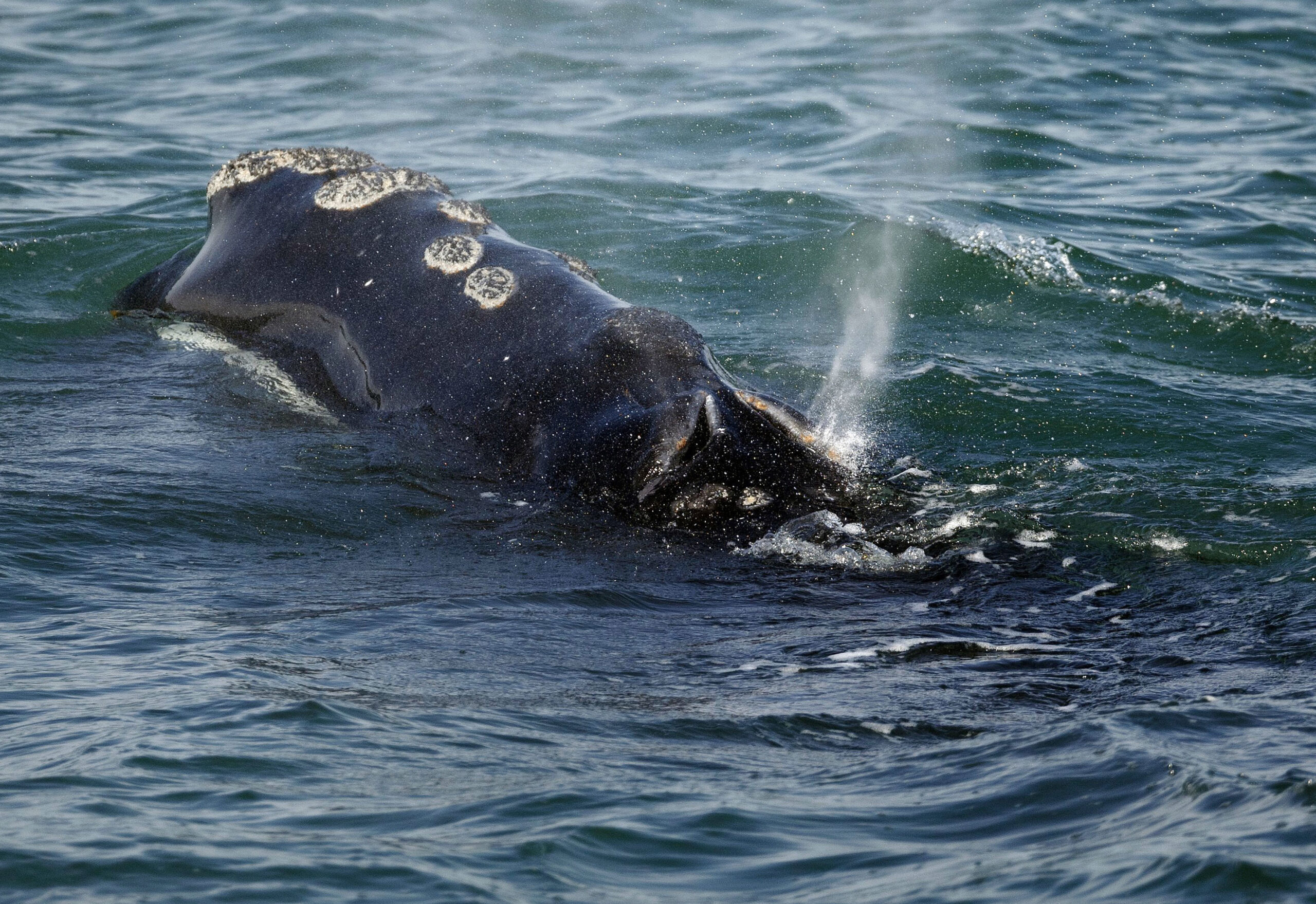New regulations in Canada could help protect the endangered whales that give birth off the Georgia coast.
In recent summers, North Atlantic right whales been spending more time off the coast of Canada, where many have been killed in the past few years.
It’s a relatively recent thing for researchers to find the whales there, instead of off the coast of New England. Scientists think they may be traveling farther north to follow the food they eat as it migrates.
Since 2012, more than 25 right whales have been found dead off the coast of Canada, many of them killed by being hit by ships. Others, tangled in crab or lobster fishing gear, sometimes survive, dragging ropes and pots behind them, though entanglement is a cause of death for the whales, too.
Now, Canada is introducing more rules to protect the whales when they return this summer.
“Protecting our oceans and our industries are not mutually exclusive tasks. We can do both together,” Bernadette Jordan, Canada’s Minister of Fisheries and Oceans, said on Thursday.
There will be areas where ships have to slow down at certain times if whales are sighted, and crab fishing will close in some places where the whales turn up.
“Like a lot of things the devils in the detail,” said Clay George, a senior wildlife biologist at the Georgia Department of Natural Resources. “We’ll just have to see what happens this summer.”
George said, with the population of North Atlantic right whales in such bad shape, he hopes Canada’s new rules will help.
“Keeping adult whales alive is much more important in any given year and at any given time than the number of calves that are born,” George said, since some calves may naturally not survive, and it takes so long for the whales to reach maturity.
Still, the past few calving seasons off the coast of Georgia and North Florida have been disappointing. So far, researchers have spotted 10 calves this winter. That’s more than have been spotted in the past three years combined, George said, but still not enough to keep the population of whales steady, let alone expand it.
One of this winter’s calves had severe injuries. It had likely been hit by a ship’s propeller, and it hasn’t been seen in a while.
“Barring some miracle this season will likely end up being another subpar year,” George said.
There are about 400 of the whales left.
In addition to Canada’s announcement, the National Oceanic and Atmospheric is also working on rules to reduce the number of whales getting tangled in lobster gear in New England.









